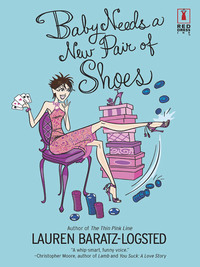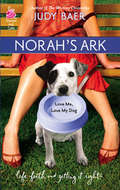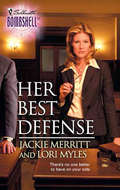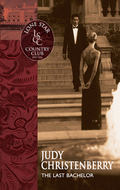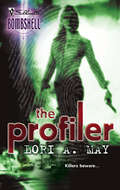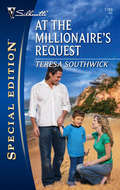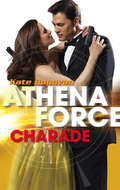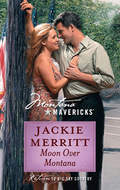Buch lesen: "Baby Needs a New Pair of Shoes"
Praise for the books of
LAUREN BARATZ-LOGSTED
THE THIN PINK LINE
“Wonderfully funny…a fine sense of the absurd and a flair for comic characterization.”
—Kirkus (starred review)
“Hilarious and original.”
—Publishers Weekly
“Proves once and for all that a woman can indeed be half-pregnant. Bridget Jones is snorting with laughter and wondering why she didn’t think of it.”
—Karen Karbo, author of Motherhood Made a Man Out of Me
“It’s impossible to put this debut novel down without knowing how Jane is going to end this charade after her ninth month.”
—Pittsburgh Post-Gazette
CROSSING THE LINE
“Chick lit with a twist!”
—Meg Cabot, author of The Princess Diaries
“A delight! This fast-paced, fun-filled novel about babies and breaking the rules brims with laughter, love and a unique and buoyant wisdom.”
—Nancy Thayer, author of The Hot Flash Club
“Baratz-Logsted has a great voice…and the message she sends about unconditional love is touching.”
—Romantic Times BOOKreviews
A LITTLE CHANGE OF FACE
“Baratz-Logsted offers a clever twist on makeover fiction.”
—Booklist
“A Little Change of Face not only has something to say about how women look, and are looked at by others, but it says it with a whip-smart, funny voice.”
—Christopher Moore, author of Lamb and Fluke
HOW NANCY DREW SAVED MY LIFE
“Charming.”
—Booklist
“A wonderful, bittersweet tale with a little Nancy Drew and Jane Eyre thrown in for good measure! The perfect combination!”
—Michelle Cunnah, author of Confessions of a Serial Dater
“Witty and wonderful…her best book yet.”
—Tom Groneberg, author of One Good Horse
Baby Needs a New Pair of Shoes

Lauren Baratz-Logsted

MILLS & BOON
Before you start reading, why not sign up?
Thank you for downloading this Mills & Boon book. If you want to hear about exclusive discounts, special offers and competitions, sign up to our email newsletter today!
Or simply visit
Mills & Boon emails are completely free to receive and you can unsubscribe at any time via the link in any email we send you.
For Laura Wininger:
with love and thirty years of friendship,
this one’s for you.
Contents
Acknowledgments
Author’s Note
Prologue
Chapter 1
Chapter 2
Chapter 3
Chapter 4
Chapter 5
Chapter 6
Chapter 7
Chapter 8
Chapter 9
Chapter 10
Chapter 11
Chapter 12
Chapter 13
Chapter 14
Chapter 15
Chapter 16
Chapter 17
Chapter 18
Chapter 19
Chapter 20
Chapter 21
Chapter 22
Epilogue
ACKNOWLEDGMENTS
Thank you to Pamela Harty for being my agent and friend.
Thank you to my editor, Margaret O’Neill Marbury, and her assistant, Rebecca Soukis, for their hard work on this book. Special thanks to Adam Wilson for services above and beyond.
Thank you to the Friday Night Writing Group—Jerry Brooker, Andrea Schicke Hirsch, Greg Logsted, Robert Mayette, Kristi Peterson, and Lauren Catherine Simpson—for being there.
Thank you to Kaethe Douglas and Sue Estabrook for being amazing first readers and friends.
Thank you to all my family and friends and, especially, my great mother, Lucille Baratz.
Thank you to my husband Greg Logsted and our daughter Jackie—no writer has the words to describe how wonderful you are.
AUTHOR’S NOTE
If you look for the particular Jimmy Choo shoes mentioned in this book, you won’t find them, except perhaps in resale outlets. Jimmy Choo did in fact make all these shoes, exactly as described, but this book was written in fall of 2005 and, since then, many catalogue seasons have come and gone, and many Choos have passed into the realm of fashion legend.
Prologue
It was a hand dealt straight out of a dream: two Aces.
What to do, what to do…
Easy answer: the dealer had just shuffled right before dealing, so there were nearly six full decks left in the chute, all of those beautiful Jacks, Queens and Kings. Even the Tens would be beautiful and a person didn’t need to be a pro at counting cards to realize that the game, for once, was strongly in the player’s favor.
So, very easy answer: split the Aces.
The next decision, if not as easy, relied totally on the player’s instincts: double down, or let the original bet ride? The original bet represented half of the player’s holdings, but the player was feeling cocky, riding high. Besides, the dealer was showing a Seven.
Big deal.
The player looked at the dealer, a face that had become so familiar. The player looked over one shoulder, at the man standing just behind, a man who gave a slight nod of his head: approval.
Giving the matter no further thought, the player pushed the rest of the chips forward, hitting the table limit. Those chips, tens of thousands of dollars worth of chips, represented everything the player had in the world.
Whatever two cards the dealer turned over next would decide the future fate of the player.
And so, let the real game begin…
1
Everything I learned in life, I learned from Shakespeare; about comedy and tragedy, about the reversal of expectations and fortune. Oh, and from my dad, Black Jack Sampson—I learned a lot from him, too.
I woke up that morning, brushed my teeth, ate breakfast.
I’ve read enough books in my life that I do realize it goes against wisdom to tell a story about a person waking up in the morning and then following them step-by-step until the storyteller puts them to bed at night. But the way I figure it, no wild journey ever began without someone waking up in the morning. I mean, if I never woke up in the morning, there’d be no story at all.
So, getting back to the beginning: I woke up in the morning, had breakfast. The stamp-sized kitchen was a natural light–deprived airless room, its walls perversely painted dark purple-red on a whim by me and my roommate right after we’d moved in. The paint wasn’t even dried when we realized that we mutually hated the color, which gave the room the air of a minuscule bordello plus four-bagel toaster (hers), but it would have taken more home-improvement initiative than either of us had to correct the Architectural Digest error of our ways. If we were going to revamp the place, we’d also need to replace the light blue-and-white tiled floor, turned yellowish with age, and the ceiling light fixture, behind which an extraordinary number of bugs gravitated to die. But this would have entailed more visits to Home Depot for just one room than I ever intended to make in my entire life. Let the ugliness ride.
I opened up one of the lower kitchen cabinets, pulled out an opened box of Cocoa Krispies, next to which were three more boxes—insurance—and poured some into a bowl. Then I reached into one of two dorm-sized fridges stacked on top of each other in the tiny kitchen, took out a fresh carton and poured milk into a glass. I always ate my cereal dry, had done so since I was a child, a fact that had made more than one previous boyfriend feel all squicky.
At present, I had no boyfriend. Maybe it was the cereal.
My dry-cereal habit also made my roommate, Hillary, feel squicky—the other fridge belonged to her—so it was a good thing she only had to watch me eat it on weekends, her job as a psychologist causing her to leave earlier in the morning than me.
Then I sat down to do the same thing I did during breakfast every morning: watch The Weather Channel, listening with half an ear as the forecast for Danbury played three times during the half-hour loop, while going through the New York Times—front page, editorials and crossword puzzle, always in exactly that order—all while crunching my dry cereal. When the last forecast was broadcast on the screen and I was finally convinced that it would indeed be sunny and dry with a high of ninety-two degrees Fahrenheit, I pushed the paper aside, so that now it was bumping newsprint with my roommate’s newspaper of choice, the New York Post; considering my roommate had a more highbrow job than mine, her news tastes were lower, but she claimed the jumble puzzles were fun. Then I turned the TV to one of the morning news-talk shows and commenced packing my lunch.
As one of the TV anchors, pretending to be a serious journalist, droned on about the importance of doing the Back to School shopping thing before the last minute (still a month away), I opened the freezer and took out my lunch: an Amy’s Cheese Pizza Pocket, carbon copies of which filled half the freezer—the other half of which was filled with what I would have for dinner, the same thing I had for dinner every night when I was at home: Michael Angelo’s Four Cheese Lasagna.
I have a confession to make here: I am an addictive personality.
Like my father before me, like a rat repeatedly hitting a lever to get at a piece of cheese, for most of my life, when I liked something, I kept hitting that lever even after I was no longer hungry, even after I’d started to hate cheese. This single-minded stick-to-itiveness had served me well in some regards. Back in college, my refusal to let a thing go until I was done with it had led to me reading not just the eight plays assigned in my Shakespeare I class, but all of Shakespeare’s plays plus the sonnets. True, Titus Andronicus sucked, but I was glad to have cried through Lear’s Cordelia, Cordelia! Stay a little speech, empathized with Macbeth’s shattering tomorrow, and tomorrow, and tomorrow, and would have given my eyeteeth to have been Ariel listening to Prospero as Prologue clapped Shakespeare into retirement. But the same obsessiveness that had led me to bardolatry also meant that, once the next semester started, my discovery of Singapore Slings resulted in my drinking them every night at the pub, missing most of my classes and flunking just enough courses to forfeit my student loan. Sometimes my behavior is comic, sometimes it’s tragic, and it’s only the final outcome of each individual story that determines which one it really is. So that’s who I am—a rat repeatedly pushing a lever for cheese—and this is my story.
Of course, like many obsessives, I wasn’t always this way. My obsessions started when I was eight, the year my mom first got sick. I used to tell myself: If I just fold the towels the exact same way every time, if I knock on the door two and never three times each time I want to enter her room, if I eat the same foods at every meal, she won’t get sicker. She won’t die. But, of course, she did get sicker. She did die. The process took ten years from start to finish. And, true, my bargaining with the Devil of Obsessive Behavior hadn’t saved her. But, by the time she was dead, I was too used to the security of my obsessiveness to let it go.
While I waited the two minutes and thirty seconds for my pizza pocket to heat up in the microwave, I got out my purple insulated lunch bag and threw in an Igloo ice pack and two cans of my latest drinking obsession: Diet Pepsi Lime. There was a case of it in the fridge and a spare case in the stairwell. When I got home after work, when I had my dinner, I’d drink my other favorite drink with it: Jake’s Fault Shiraz, of which there were a half-dozen bottles in the fridge. I liked my wine red and cold, and I liked Jake’s Fault a lot, but despite my obsessiveness, I’d limited myself to one or two glasses at a sitting, despite the near overwhelming compulsion to drink the whole bottle.
Hey, if my daily diet lacked nutritional variety, if there was never a piece of fruit or a real vegetable in sight—not in my fridge, at any rate—at least I took a daily multivitamin. So, okay, so maybe that multivitamin was Flintstones, but still…There were plenty of fruits and vegetables in my roommate’s, just as there was a wider variety of food in the lower cabinets that were earmarked as hers.
I read a book once that said many people don’t like having overnight guests, not because they’re inhospitable or worried that the guests will be a nuisance, but because of a fear of having others see how intensely weird they really are in their own habits. That’s me, a woman intensely weird in her own habits, afraid to let the rest of the world see in.
As I zipped my purple lunch bag shut, the morning talk show switched over to commercial and suddenly he was there again: the man of my dreams.
I guess that bears explaining and really he wasn’t the man of my dreams, since the man of my dreams was faceless, but certainly he’d inspired a lot of my recent dreams.
The man in question was The Yo-Yo Man.
I mean, it wasn’t like he wore a streaming superhero red cape with a giant yellow Y emblazoned on his chest, but I thought of him as The Yo-Yo Man. And the commercials he starred in had been airing for about a month.
There was a new yo-yo manufacturer, Ball & String, which had been trying to unseat Duncan as the manufacturer of yo-yos for some time now. Their latest gambit involved a commercial campaign where this incredibly talented yo-yoist—yes, I did just say yo-yoist like it was an actual word—did things that were, well, downright amazing. I guess the theory behind making these commercials was that it wasn’t enough for one company to try to say in print ads that they were better than another; when a medium was so visual, they needed to actually show, not just tell. The things that The Yo-Yo Man could do were amazing, and yet he made it look so effortless, as if anyone, including the viewer at home, could potentially do the same, if only they used the Ball & String. He could spin two yo-yos simultaneously, he could juggle fire in one hand while doing Round the World with his other and, man, let me tell you, he could walk my dog any day.
Not that I have a dog. I don’t even particularly like dogs. But, really, The Yo-Yo Man could walk my dog any day.
And he was cute. Did I mention that The Yo-Yo Man was cute? Not that you could tell height from a TV commercial, but I still guessed him to be about six feet even to my own five feet even. His hair was the opposite of mine, his being long, curly and blond. And his eyes were a crystal blue-green where mine were somewhere between the light and dark chocolates in a box of Russell Stover. So he was the opposite of me, plus he was cool.
He was certainly cooler than his backup yo-yoists, for of course the commercial did have a supporting cast. How better to get the message across that the Ball & String yo-yo was the best device ever invented to aid someone in their journey to becoming as cool as The Yo-Yo Man than to surround him with also-rans, less cool men and women dropping their own yo-yos, setting their hair on fire, because they were not as talented just yet, because they did not have the right yo-yo.
What, I ask you, is sadder than being an also-ran to The Yo-Yo Man?
I particularly felt sorry for the guy furthest in the background. Furthest Guy, as I thought of him, was kind of geeky-looking, with short-cropped brown hair and uncool clothes; I couldn’t make out his eye color. And I guess that was part of the point: to even rate eye color in the commercial, to be as cool as The Yo-Yo Man, a guy needed Ball & String.
And ever since this commercial started airing, nearly every night I had a dream about a man with a yo-yo. The man in my dream was faceless, so it was hard to tell if he was supposed to be The Yo-Yo Man or not, but whoever he was, he was just as amazing with his tricks as The Yo-Yo Man. I don’t want you thinking I was obsessed or anything and it wasn’t as though I dreamed of him all night long, but, as I say, he haunted me often enough.
As soon as the commercial ended, the strains of The Yo-Yo Man theme song abruptly cut short, I switched off the TV.
I grabbed my lunch bag and looked down at my attire: a black Coldplay T-shirt that had seen better days, faded khaki shorts, scuffed Nikes.
Sighing at the underachieving squalor that was me, I grabbed the last Ernest Hemingway book I needed to read to make my tour of him complete and my yellow bucket, in which were my squeegee, a shammy, a paint scraper and two rolls of paper towels.
My employer? Squeaky Qlean Window Washing.
Yes, I wash windows.
2
Even if I hated the name Squeaky Qlean—the name dreamed up by the business’s proprietor, Stella Davis, a woman who had yet to realize that there were misuses for the letter Q—window washing was the perfect job for me. The repetitive motions fit the internal rhythms of my obsessive personality, plus, although there was not a whole lot of prestige involved—precisely, none—at least my mind was my own. I’d had jobs where I was actually required to think on someone else’s time clock and I found the lack of opportunity for free association to be just too mentally confining.
“You’re twenty-eight years old now, Delilah.” Hillary would attempt to grow me up from time to time. “Isn’t it time you thought about getting a real job?”
Those words always rankled some, but it was hard for me to get mad at Hillary or if I did get mad, to stay mad for too long, because Hillary Clinton was the best friend I’d ever had. She was not only my best friend, though, my mother long dead, she was like a mother to me, too. We may have squabbled like family members constantly, but I loved her. She was my favorite living woman in the world.
And, yes, her name really was Hillary Clinton.
But this was no time to be thinking about Hillary Clinton, or the fact that she was my best friend, or the fact that she’d remained my friend even though I was not much of an achiever and she was a huge one, or the fact that maybe I was something of a charity case for her, her continued friendship toward me making me something akin to her more lost-cause clients—Hillary always said that my obsessions were both a comfort to me and what victimized me most, making it a perfect vicious circle—because Stella Davis, my boss, was pulling up in the Squeaky Qlean van outside my condo, South Park. The van was pristine white, with a picture of a tuxedo-wearing penguin cleaning a window on it, the window having those little sparkly star thingies all over it, not unlike on a Windex bottle, in order to symbolize the acme of window-cleaning perfection.
South Park always seemed to me to be a silly name for a condo in Danbury, since Connecticut is north and there was no park in sight, but we at least had a stamp-sized balcony—fraternal twin to the minuscule kitchen—off the living room of our unit that afforded a view of the pool down below, so I tried to suck it up about the nonsensical name.
Another thing that impressed me as silly, as it did every workday, was Stella’s appearance and attire. Stella had her blond hair in an honest-to-God bouffant style, her green eyes highlighted by full makeup, her buxom top encased in a faux tuxedo T-shirt that had tails down the back, her perky bottom in pristine white shorts, with black socks on her feet and white leather sneakers over those that she polished every day. When we picked up Stella’s two other employees, Conchita and Rivera, both from Brazil, they would be similarly dressed, sans the hooker makeup.
“If we look better than the competition,” Stella was fond of saying, “people will want to use us instead. After all, who would you rather hire, a window washer that looks like she’s ready to accept an Academy Award or one who’s dressed sloppy like, well, you?”
I’d pointed out to Stella, repeatedly, that while penguins were my favorite non-cat animal, loving penguins and wanting to look like a penguin were two very different things and that with my shortness, I couldn’t help but look like a waddling refugee from Antarctica in one of her getups. If I were any other member of the crew, undoubtedly Stella would have fought me on this—Stella was big on fighting—but she grudgingly acknowledged that I was the best worker she’d ever had. My nickname among the crew, The Golden Squeegee, ensured that I’d have a job with Stella for as long as I wanted one. And, besides, the pristine white shorts they all wore always wound up splattered with gray window sploodge by the end of the day anyway, kind of spoiling Stella’s desired effect of bucket-carrying Hollywood stars on the red carpet.
As for Conchita and Rivera, and the all-girl crew, Stella was also fond of saying, “I don’t hire men anymore. The EOE people can sue me if they want to, but have you ever hired a man to do hard work? What a bunch of whiners. ‘It’s too hot out here.’ ‘When do we get off work?’ ‘I have a second job to get to.’ ‘That ladder’s too high.’ ‘I’m taking my break now.’ I swear to God, I always thought it was just me. But then I talked to a colleague who owns a landscaping service and he said the exact same thing. ‘Ask a 100-pound girl to pull a tree out of the ground with her bare hands and she gets right to it. Ask a 200-pound man and before he’s even touched the damn thing, he’s calling Worker’s Comp on his cell phone to verbally file papers for his bad back. Give me a six-pack of chicks any day.’ Naturally, I poked him in the gut with my pool cue for saying ‘chicks,’ but, believe you me, I know from whence he speaks.”
“So what did you do last night?” Stella asked, snapping her omnipresent gum as she keyed up the ignition. “What’re you reading today? Not that Hemingway guy again. Isn’t he the one who hated chicks?”
I knew that the barrage of questions—Stella was a relentless talker—would continue until we picked up Conchita and Rivera, at which point Stella’s attentions would focus solely on them. Unlike me, but very much like Stella, Conchita and Rivera were big talkers.
Like me, Conchita and Rivera were short and dark. But unlike me, where in Stella’s uniform I would have looked like a reject extra from March of the Penguins, Conchita and Rivera looked hot hot hot, like maybe they worked at an upscale Hooters or something.
“Stel-la!” Conchita and Rivera jointly trilled as they hopped into the van.
Conchita and Rivera lived in a neighborhood that would have depressed me, one of Danbury’s few rough neighborhoods, but they never seemed to mind, greeting each day of being alive with an exuberance I could only envy. Of their former home in Brazil, obviously worse, all they would ever say was, “You don’t even want to know, Delilah. Better for us here.”
The Girls From Brazil, as Stella and I referred to them, were illegal aliens. But I was sure not going to be the one to turn them in. If their situation here wasn’t scary enough, the tone they got in their voice when they told me I didn’t even want to know what it was like where they came from. During the three years I’d been working for her, whenever Stella had put ads in the paper prior to hiring them, despite the fact that Stella offered a generous hourly wage, the only people to apply were other Brazilians. The way I figured it, they weren’t stealing jobs from legal people, because no one legal wanted their jobs; no one except me, that is.
The Girls From Brazil also always greeted Stella as though they were trying to pick her up, in that way, which was not far from the truth since Conchita and Rivera were free-living lesbians, always willing to expand their circle of love. But while they incessantly flirted with Stella, they never once flirted with me, making me feel somehow pathetic in the extreme: my hot meter was turned so low, I wasn’t even hot enough to be desirable to free-living lesbians.
Oh, well. At least I owned the title of The Golden Squeegee.
And I did love the women I worked with, if for their sheer vibrancy alone, even if they did have a tendency to pick on me.
“Stel-la.” Conchita poked her head between the front seats. “How come she always gets to sit in front?”
“She” was their name for me.
“Because she gets carsick,” Stella explained for the umpteenth time. “And I don’t want her vomiting in my hair.”
“Sounds pretty flimsy to me,” said Rivera. “Have you actually ever seen her get carsick?”
“Well, no,” Stella conceded. “But do any of us really want to?”
A valid argument, I thought, even as I muttered, “‘Fire burn, and cauldron bubble.’” Honestly, did there have to be three of them to devil me?
“What did she say?” Conchita asked.
“Something about fire and bubbles,” Rivera said. “I don’t know. Maybe she’s singing some kind of dumb-ass song?”
“Where are we working today?” Conchita asked.
“First job, a big house in Westport,” Stella said. “Movie star.”
Westport and the towns around it had more movie stars per square mile than anywhere else outside of Hollywood and it seemed that they were all clients of Squeaky Qlean. In fact, we did so many homes belonging to famous people that Stella occasionally flirted with the idea of adding “Window washers to the stars!” to her business cards but worried that her upscale clientele would find that too presumptuous.
“So no salsa dancing on the ladders,” Stella cautioned. “You girls need to act like professionals today. The job is way overpriced and I’m hoping to talk them into having us back each month.”
Monthly window cleaning might seem like a ridiculous expense for a private homeowner, but Stella had secured one such client already, a famous record producer who lived out on the water. When we first did his house, he hadn’t had it done in ten years and he spent the whole morning following me from room to room—I was always the inside person—stoned out of his mind, laughing and muttering, “Clean windows. Way cool. I can see. I can see!” Mister Famous Record Producer had moved in around the time of the Clinton impeachment, something he still hadn’t gotten over all these years later. “The man got impeached for a blow job—a blow job! If people in the music business got fired for that, there’d be no music left anywhere in the world.” Stella had actually needed to talk him out of having us come every week, which was what he originally wanted, and, good as the money was, none of us wanted to listen to him do his “I can see!” number that often or listen to him whine about how Bubba had gotten treated, even those of us who agreed with him. If every window washer lost their job over a…
If traffic was kind and Rte 7 wasn’t one long parking lot, Westport was a good thirty-five minutes from Conchita and Rivera’s apartment, so I pulled out my book and went back to my Hemingway, figuring on getting some reading in. A few more chapters—I’d started the book the night before—and I would have read everything Papa’d ever written.
“What you reading today?” Conchita asked.
I held up the book, showed them the cover.
“No shit, chica,” Rivera said, “but the sun also sets, too, you know, every damn day.”
Indeed.
Stella had not been whistling Windex when she said the client we were doing was a movie star. Elizabeth Hepburn, star of stage and screen, may have been as old as television, but even I, who preferred pages to celluloid, knew who she was. She had two Academy Awards on her mantel—I was tempted to dance with them when she went down for her morning nap, book in hand, but resisted the urge—and had starred in my all-time favorite movie, A Bitter Pill, about a starlet who overcomes her strumpet past only to be taken out by brain cancer on the night of the Oscars. “Did someone turn the lights out in here?” was a line that always made me bawl like a baby and always made Hillary laugh at me for bawling like a baby.
Due to my fear of heights, I was always the inside person. Still, even though there were three of them outside and only one of me inside, despite Stella’s earlier admonitions to take this job seriously, they all goofed around so much that I was done long before they would finish.
Hey, they don’t call me The Golden Squeegee for nothing.
So I grabbed my lunch bag from the van and sat out on a far corner of the fieldstone terrace, figuring no one in the house could object to that too much so long as I cleaned up after myself, and pulled out my now-cold Amy’s Cheese Pizza Pocket, popped open my Diet Pepsi Lime and polished off my Hemingway.
Food done; drink done; book, and therefore all of Hemingway, done. Crap, I hadn’t thought to bring a backup book. What was taking the other three so long?
“Miss?” The voice was tentative and a bit shaky, as though the speaker was recovering from something. And yet somehow the voice was confident as well, as though the speaker was also sure that whoever her audience was, that audience would immediately burst into applause. “Oh, miss?”
I looked up to see Elizabeth Hepburn, wearing a plush pink satin bathrobe despite the warmth of the day, standing in the sliding-glass doorway. She may have been close to ninety, but she was still a stunner, with blue eyes like a chip from the sky, hair as white as a new Kleenex tissue and a perfect smile that defied the viewer to claim those teeth weren’t real; poking out from the bottom of her robe, she had white fur mules on her pedicured feet. If I hadn’t worried it might be taken amiss, I really might have applauded for her.
But from doing other stars’ homes with Stella, I’d come to realize that stars could be, well, strange. It was like they didn’t know what they wanted. On the one hand, they wanted you to know who they were—“I am important!”—but on the other, they didn’t want you to acknowledge who they were, as if somehow that acknowledgment might be an intrusion.
I jumped up from where I’d been sitting, wiped my hands off on my khakis.
Die kostenlose Leseprobe ist beendet.
